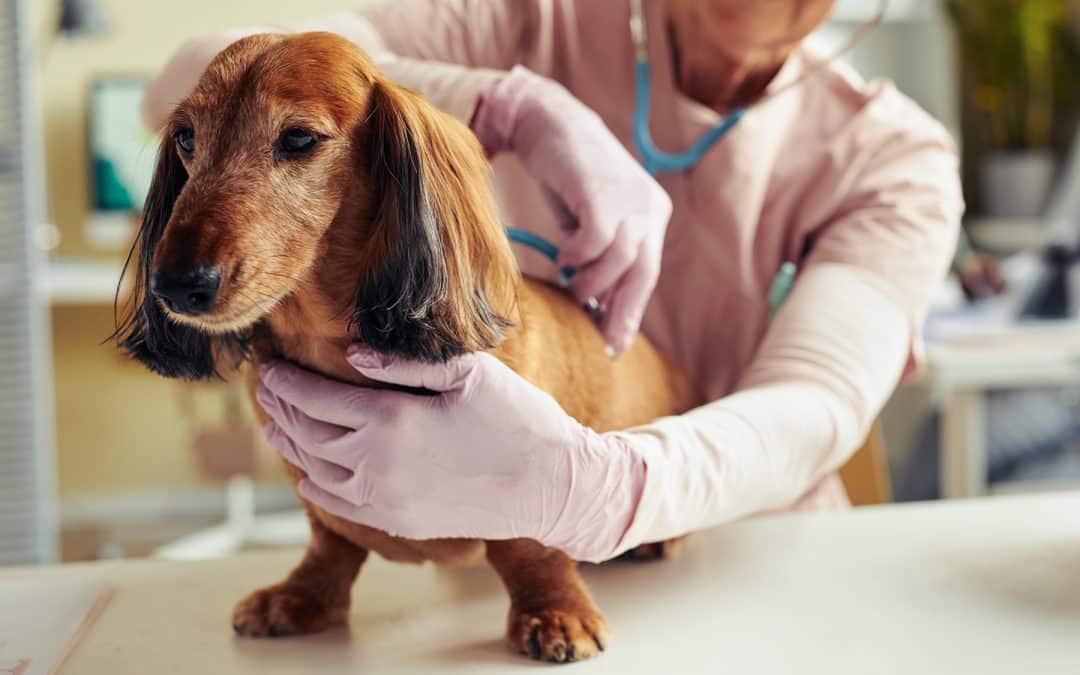Pet emergencies are often sudden and unexpected. In these moments, urgent vet care can make a big difference in preventing complications and alleviating suffering. Pet emergencies can range from accidents and injuries to sudden illnesses, and the timing is never convenient. When an emergency arises, the specialized knowledge and immediate attention provided by an urgent veterinarian ensures that your pet receives the care it needs when it matters most.
The Value of Immediate Vet Care
Urgent care vets are trained to assess your situation accurately, providing vital guidance and life-saving interventions. Without prompt care, conditions can worsen rapidly, leading to increased suffering and complications. Immediate vet care not only addresses the issue but can also prevent long-term consequences, ensuring your pet receives the best chance at a full recovery.
What are the Most Common Pet Emergencies?
- Trauma: Accidents, falls, or injuries from various sources can lead to traumatic emergencies, such as fractures, wounds, and internal injuries.
- Toxicity: Pets may ingest harmful substances like toxic foods, plants, chemicals, or medications, leading to poisoning and requiring immediate treatment.
- Respiratory Distress: Difficulty breathing, choking, or severe coughing can indicate respiratory emergencies, which may be caused by a wide variety of illnesses or injuries.
- Seizures: Seizures, whether due to epilepsy or other causes, can be frightening and require immediate medical attention.
- Bloat (Gastric Dilation-Volvulus): Bloat is a life-threatening condition in which a dog’s stomach twists and fills with gas. Rapid intervention is vital to save the pet.
- Heatstroke: High temperatures can cause heatstroke in pets, leading to severe organ damage. Controlled cooldown of the overheated pets may be recommended in addition to seeking veterinary care promptly.
- Allergic Reactions: Allergic reactions, often triggered by insect bites, stings, or other allergens, can result in swelling, hives, difficulty breathing, and even anaphylaxis.
- Fractures: Broken bones require immediate care to prevent further pain and complications. Accidents or falls are common causes of fractures.
- Eye Injuries: Eye injuries can result from infection, accidents, fights, or foreign objects. Quick treatment is necessary to preserve vision and prevent irreversible damage.
- Gastric Foreign Bodies: Pets may ingest foreign objects that can become lodged in the digestive tract, causing pain, obstruction, or perforation.
- Hemorrhage: Severe bleeding can result from accidents, injuries, or underlying medical conditions, demanding immediate attention to control bleeding and address the underlying cause.
Signs That Your Pet is Experiencing an Emergency
It’s important for pet owners to be vigilant and recognize the signs of a pet emergency. Here’s a clear identification of red flags that indicate your pet may be experiencing an emergency:
- Difficulty Breathing: Rapid, labored breathing, grey or blue gums, neck stretching, choking sounds, or gasping for air can signal a respiratory emergency.
- Profuse Bleeding: Any uncontrolled or profuse bleeding from a wound, injury, or body orifice should be addressed urgently.
- Uncontrolled Vomiting or Diarrhea: If your pet is continuously vomiting or having severe, uncontrollable diarrhea, they may be at risk of dehydration and should be evaluated promptly.
- Loss of Consciousness: Sudden loss of consciousness or inability to wake your pet from sleep may indicate a severe problem requiring immediate attention.
- Seizures or Tremors: Seizures, convulsions, difficulty walking, or tremors can be a sign of neurological issues, poisoning, or other critical conditions.
- Extreme Pain or Distress: Persistent signs of pain, distress, or severe discomfort, such as whining, crying, excessive panting, or restlessness, require assessment.
- Inability to Walk or Move: If your pet suddenly can’t walk, move, or use their limbs, it may suggest a spinal injury or other serious issue.
- Swollen Abdomen: A swollen or distended abdomen may be indicative of bloat or other abdominal emergencies, especially in dogs.
- Sudden Behavioral Changes: Drastic and unexplained changes in behavior, including aggression or withdrawal, should be addressed promptly.
- Excessive Salivation: Drooling excessively or foaming at the mouth can be a sign of poisoning or oral discomfort.
- Severe Lethargy: If your usually active pet becomes extremely lethargic, unresponsive, or weak, it could be a sign of a serious underlying issue.
We encourage all pet owners to pay attention to these signs. Trust your instincts—if you suspect something is wrong with your pet, contact East Valley Urgent Pet Care in Mesa, AZ, immediately. Early intervention can make a life-saving difference for your pet.
What To Do if Your Pet Has an Emergency
Facing a pet emergency can be incredibly stressful, but knowing how to respond can make all the difference. Here’s a step-by-step guide on how to handle a pet emergency:
Call the Urgent Vet Clinic Immediately
Time is of the essence. Contact East Valley Urgent Pet Care in Mesa, AZ, as soon as you suspect an emergency. Our experienced team is available to guide you to the right location for your pet’s needs and prepare for your pet’s arrival.
Describe the Situation and Follow Their Instructions
Provide a clear and concise description of your pet’s condition and the circumstances surrounding the emergency. Follow the instructions carefully, as our professional guidance can help stabilize your pet until you reach the clinic.
Safely Transport Your Pet to the Clinic if Required
Depending on the severity of the emergency, you may need to transport your pet to the nearest emergency or urgent care clinic promptly. Ensure their safety during the journey, using a carrier or securing them properly in the vehicle. If your pet is injured or in pain, handle them gently and with care. Placing larger dogs on a blanket can make it easier to ease them in and out of the vehicle.
Provide First Aid if Possible and Safe
Providing basic first aid can be helpful. If your pet has a visible wound or injury, apply clean bandages or dressings to control bleeding or immobilize fractures if you have the necessary supplies. Be cautious, as injured or distressed pets may react unpredictably.
Remember that while first aid can be valuable, it is not a substitute for professional veterinary care. The team at East Valley Urgent Pet Care is trained to support you and your pet during urgent situations as well as emergencies.
Urgent Vet Care in Mesa, AZ
During pet emergencies, having a trusted partner by your side can make all the difference. Contact your local urgent vet care, East Valley Urgent Pet Care in Mesa, AZ, if you suspect your pet is experiencing an emergency. Our team of professionals is here to support you in deciding the best course of action for you and your pet. Our goal is to provide our community with education and compassionate veterinary care.
Megan Usiak-McBeth
BVMS, cVMA
Dr. Megan Usiak-McBeth leads East Valley Urgent Pet Care with a philosophy of treating every pet and owner as she would wish to be treated. With a background in emergency veterinary medicine and experience as a veterinary nurse, she is not only technically adept but deeply compassionate, often serving as an advocate for voiceless pets. Beyond her urgent care duties, Dr. Usiak is passionate about educating the next generation of veterinarians and enjoys outdoor activities with her family.
The Bridge Between Your Family Vet and the Emergency Room
Building Relationships and Giving the Best Quality Medical Options Within Your Family’s Means
Click the Pre-Register button below to speed up your check-in progress


